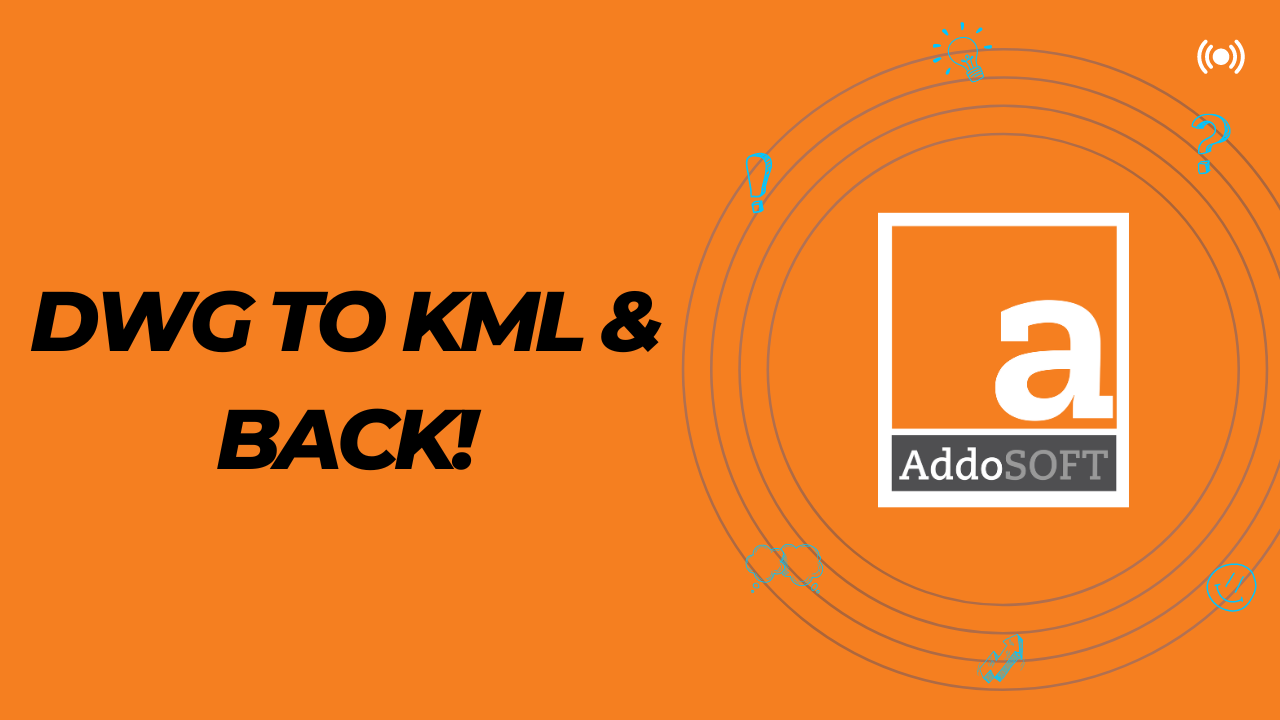Export DWG to KML and Import KML to DWG

Watch the Tutorial or Read the Written Guide Below
Learn how to export DWG files to KML and import KML files back into DWG with our easy-to-follow video guide. For a detailed written guide, check out the link below.
Exporting DWG to KML
Step 1: Open Your Drawing
Open a drawing that contains the items you would like to export to KML.
As you can see in my drawing, I have multiple layers.

Step 2: Export to KML
In the AddoSoft ribbon, click on the 'AS_KML' button and then click 'Export.'
A export window will appear. Asking for Input

Step 3: Configure Export Options
In the export window, you have several options:
- Swap the X and Y axes: Adjust the orientation of your data by swapping the X and Y coordinates.
- Invert X: Flip the X-axis to reverse the horizontal direction of your data.
- Invert Y: Flip the Y-axis to reverse the vertical direction of your data.
- Convert millimeters to meters: Change the measurement units from millimeters to meters for scaling.
- LO degrees: Enter the LO system degrees for the area you are exporting. This ensures that the data is correctly aligned with the specific longitudinal zone in South Africa.
- Line Width: Set the width of lines to adjust their appearance in the exported file.
- Opacity: Adjust the transparency of elements to control their visibility in the exported file.
Step 4: Complete the Export
After clicking 'Export,' the computer will begin the export process. You will be prompted to select the items you want to export. Choose the desired items and press 'Enter.' This process may take some time depending on the file size and computer speed. Once the export is complete, Google Earth will open automatically.
All text items will be converted to placemarks. Additionally, you will see that the KML file has folders in Google Earth that match the layers from your CAD file. This organization helps in easily identifying and managing different layers, making it simpler to analyze and interact with your data in Google Earth.

Final Result
Here is the final result of our export. As shown, all items have been successfully exported, with text items converted into placemarks.

Importing KML to DWG
Step 1: Save Your File as KML
Before starting the import process, first save your file as a KML file. This ensures that the data you want to import is correctly formatted for the next steps.
Step 2: Import the KML File
In a New CAD Drawing, click on the 'AS_KML' button again and select 'Import.'
Configure Import Options
A popup will appear with the following options:
- Swap X and Y: Adjust the orientation of your data by swapping the X and Y coordinates.
- Invert X: Flip the X-axis to reverse the horizontal direction of your data.
- Invert Y: Flip the Y-axis to reverse the vertical direction of your data.
- Import as Lines: Import the data as lines, maintaining the line structure from the KML file.
- Import as XYZ Points: Import the data as XYZ points, which places individual data points in the CAD drawing.
- Grid Size (meters):Set the grid spacing to 50 meters to generate points every 50m from a polygon, ensuring consistent point intervals.

Step 3: Import the KML File
After adjusting the settings, select your KML file and click 'Import.' The process will begin and may take some time depending on the file size and the performance of your computer.
Final Result of the Import
As you can see, the KML file was successfully imported, and all the existing layers were preserved intact.

